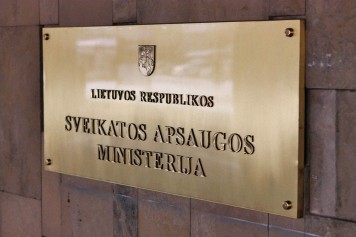On March 23rd, 2017 the Government of the Republic of Lithuania placed two Lithuanian ministries under obligation to prepare legal acts that would enable gender reassignment procedure in Lithuania. The Ministry of Health and the Ministry of Justice were required to submit the draft proposals on “providing treatment for persons with gender identity disorder” by September, 2017. The Cabinet of Ministers has reached this decision after reviewing the 2016 Activity Report by the Representative of the Government to the European Court of Human Rights (ECtHR).
“We hope that we will finally see more determined actions. The official resolution by the Government states that these draft proposals should be submitted by September 1st, 2017,” commented Karolina Bubnytė, representative of the Government to the ECtHR.
As stated by Ms. Bubnytė in the annual report, the Committee of Ministers of the Council of Europe, which oversees the implementation of the European Court of Human Rights’ judgements, urged Lithuania to adopt all necessary legal acts and to enable gender reassignment procedure Lithuania. According to the Government’s representative, the best solution to this complex problem would be to adopt a separate law on gender reassignment.
“My suggestion would be to prepare a special law which would outline gender reassignment procedure in Lithuania,” Ms. Bubnytė stressed during the meeting at the Government.
According to the Government’s representative to the ECtHR, the deadline for preparing the draft proposals was assigned strategically. In September, 2017 Lithuania will need to provide updated information to the Committee of Ministers regarding Lithuania’s obligation to legislate on gender reassignment procedure.
Despite the fact that the Lithuanian Civil Code (Article 2.27) foresees the individual right to go through gender reassignment procedure, the enabling legislation has never been adopted. In 2007 the European Court of Human Rights (ECtHR) in the case L. v. Lithuania concluded that this legal gap constitutes a violation of the Article 8 of the Convention (i.e. the right to respect for private life). In 2014 the Committee of Ministers of the Council of Europe transferred this case to the enhanced supervision procedure, because the Lithuanian authorities continue to disregard their international obligations in the field of human rights for transgender people.
Currently the legal gender recognition in Lithuania can be sanctioned only by the national courts after the accomplishment of the gender reassignment surgery, which is currently not available within the framework of the Lithuanian health care system. To put it in other words, the Lithuanian State imposes impossible-to-fulfil requirements upon its transgender citizens with the view of obtaining legal gender recognition.
“There is no procedure, no order, no funding. Currently there are no practical ways of solving this problem, so the right to go through gender reassignment procedure just does not exist in Lithuania,” explained Ms. Bubnytė.
“Sex change is legally an improper term. The term to be used is recognition of gender identity. Everybody would probably agree that technically we cannot change sex. In this case we are referring to gender as a social category,” the representative of the Government commented at the European Court of Human Rights.




